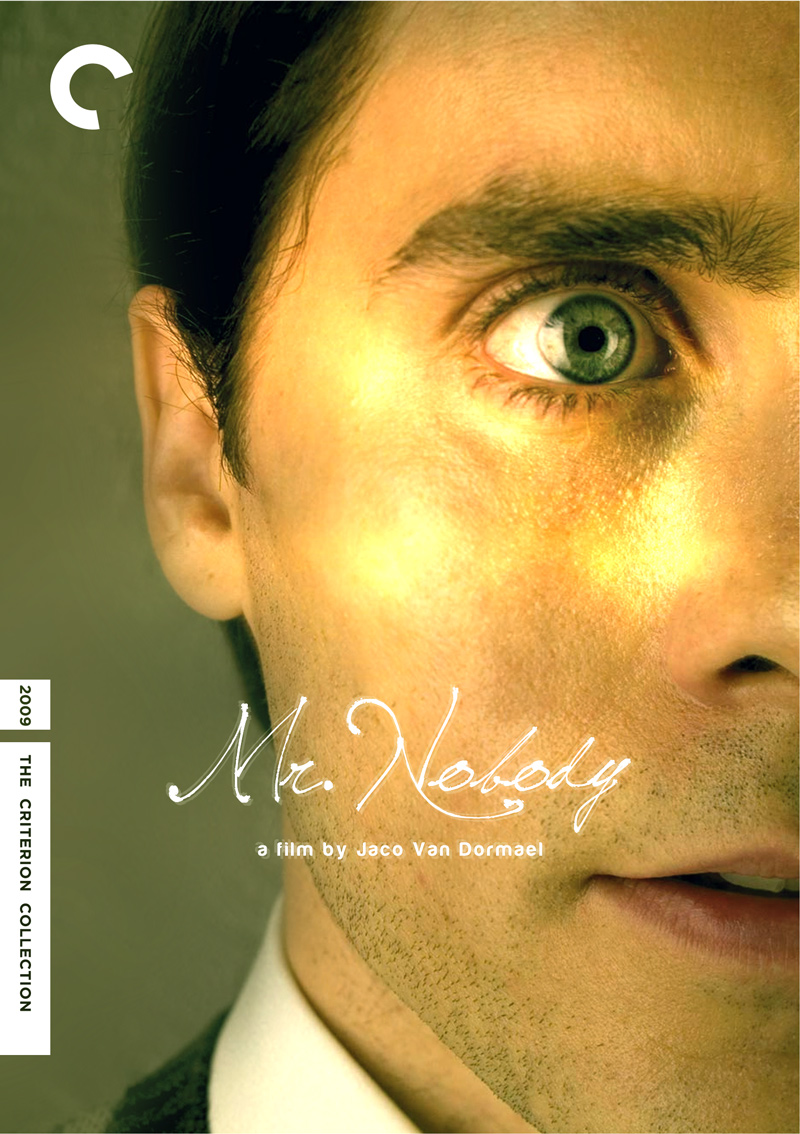
#7: Mr. Nobody by Jaco Van Dormael. In the ten days leading up to the 83rd Annual Academy Awards, I listed my ten favorite films of 2010, each accompanied by a custom Criterion Collection cover inspired by Sam Smith’s Top 10 of 2010 Poster Project.
2009 / Jaco Van Dormael > In the words of Lauryn Hill: “Everything is everything.” That may be Van Dormael’s message in Mr. Nobody, an ultracomprehensive look at living, decision-making and learning not to worry about the consequences. It can be argued that even on our deathbeds, we may not have the perspective to know if we’ve made an impact upon this world. But ultimately, our own happiness at the moment our eyes close may dictate how successful we’ve been. But while we’re on this earth, it’s impossible for our wandering minds not to second-guess our every decision. Fear not, however, as thanks to an angelic mishap, Nemo Nobody has a gift: He can live every life of every alternate universe that has ever been possible. And in our journey with him, we learn that the good can be bad, vice versa, and if anything, making the best of what you’ve got is really the only way to go.
Cinematically, Mr. Nobody is joy. Van Dormael’s passion and energy is embodied in every sequence, keeping us guessing, excited and caring. At the center, Jared Leto’s adult Nobody is an intriguing figure who we can’t ever pinpoint because, frankly, we’re not always sure which of his decisions we’re following. But none fascinates more than the younger Nemo, played by Toby Regbo (who’s soon-to-be the young Dumbledore in the second in installment of Harry Potter and the Deathly Hallows). His onscreen chemistry with Juno Temple evokes in the viewer a romanticized nostalgia about first loves. The strength of this carries itself throughout the film until it culminates in the purest of ways.
Always visually charming, Mr. Nobody is an emotional epic that’s somehow failed to get U.S. distribution despite having brand name actors and superb (at a nearly $50mn budget) production quality. While it may be a conceptual film at its core, unlike forced-puzzles like The Prestige where it’s more of a chore to connect the dots, there’s actual human satisfaction in discovering Nemo Nobody’s secrets. After all, the rationale for the film’s discordant structure is based on our own realities.

